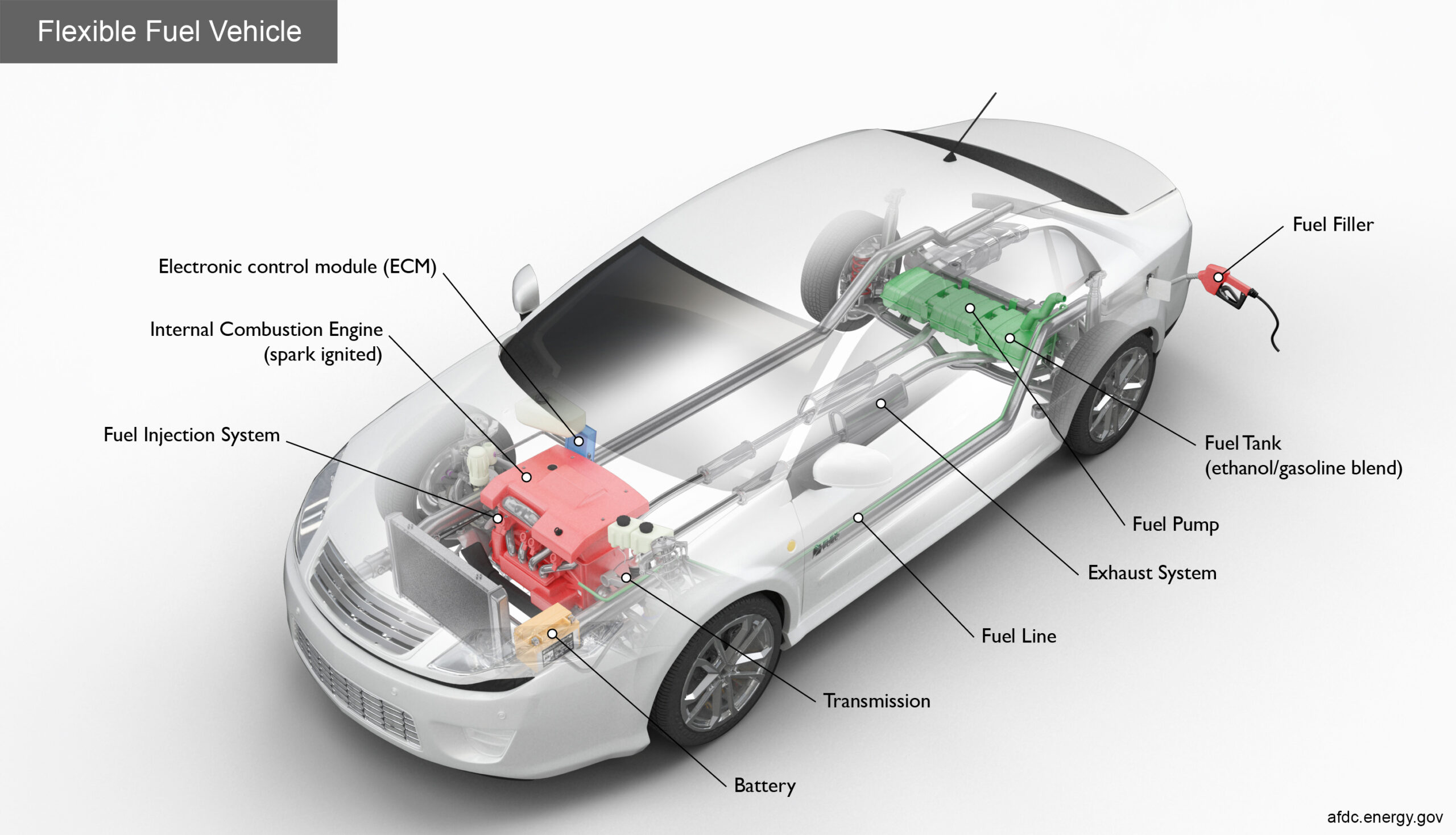Flex fuel vehicles, also known as FFVs, are designed to run on a variety of fuel types, offering drivers greater flexibility and potentially reducing their environmental footprint. Understanding what types of gas are suitable for these vehicles is essential for optimal performance and longevity.
| Heading | Description |
|---|---|
| Introduction to Flex Fuel Vehicles | Explanation of flex-fuel and its composition, including ethanol and gasoline blends. |
| Understanding Flex Fuel | Debunking misconceptions surrounding flex-fuel vehicles and their capabilities. |
| Types of Fuel Compatible | Guidance on identifying flex-fuel vehicles and understanding their benefits. |
| Flex Fuel Vehicle Compatibility | A detailed breakdown of ethanol and gasoline as suitable fuel options for flex-fuel vehicles. |
| Recommended Fuel | Recommendations on the best fuel types for optimal performance and efficiency. |
| Effects of Using Different Fuel | Analysis of how different fuel types affect performance, fuel efficiency, and the environment. |
| Common Myths About Flex Fuel | Debunking misconceptions surrounding flex fuel vehicles and their capabilities. |
| Tips for Maintaining | Practical tips for maintaining a flex fuel vehicle and ensuring long-term reliability. |
| Conclusion | Summarization of key points discussed in the article. |
Understanding Flex Fuel
Flex fuel refers to vehicles capable of running on a blend of gasoline and ethanol, typically ranging from E10 (10% ethanol, 90% gasoline) to E85 (85% ethanol, 15% gasoline). This flexibility in fuel types allows drivers to choose the most cost-effective or environmentally friendly option available.
Types of Fuel Compatible with Flex Fuel Vehicles
Ethanol
Ethanol, a renewable fuel made from plant materials such as corn or sugarcane, is a primary component of flex-fuel. It is widely available and often blended with gasoline to create ethanol-gasoline blends.
Gasoline
Gasoline is another fuel type compatible with flex-fuel vehicles. While ethanol is the preferred choice for environmental reasons, gasoline can still be used in flex-fuel vehicles without issue.
Flex Fuel Vehicle Compatibility
How to Identify a Flex Fuel Vehicle
Most modern flex-fuel vehicles come with badges or labels indicating their compatibility with ethanol blends. Additionally, many vehicle manuals specify the fuel types suitable for use.
Benefits of Flex Fuel Vehicles
Flex fuel vehicles offer several advantages, including reduced dependence on fossil fuels, lower emissions, and potential cost savings, especially when ethanol prices are lower than gasoline.
Recommended Fuel for Flex Fuel Vehicles
While flex-fuel vehicles can run on various fuel types, ethanol blends, such as E85, are generally recommended for optimal performance and environmental benefits.
The Effects of Using Different Types of Fuel
Performance
The type of fuel used can affect the performance of a flex-fuel vehicle. Ethanol blends may offer slightly lower mileage compared to pure gasoline, but the difference is often negligible.
Fuel Efficiency
Flex fuel vehicles may experience a slight decrease in fuel efficiency when using ethanol blends, primarily due to ethanol’s lower energy content compared to gasoline.
Environmental Impact
Using ethanol blends in flex fuel vehicles can help reduce greenhouse gas emissions and decrease reliance on non-renewable fossil fuels, contributing to a cleaner environment.
Common Myths About Flex Fuel Vehicles
Myth 1: Flex Fuel Vehicles Can Only Run on Ethanol
While ethanol is a common fuel type for flex-fuel vehicles, they are also compatible with gasoline and other fuel blends.
Myth 2: Flex Fuel Vehicles Have Poor Performance
Flex-fuel vehicles perform comparably to their gasoline counterparts, with minor differences in mileage and power output depending on the fuel used.
Tips for Maintaining a Flex Fuel Vehicle
Regular maintenance, including oil changes, filter replacements, and fuel system checks, is essential for keeping a flex fuel vehicle running smoothly. Additionally, using high-quality fuel from reputable sources can help prevent engine issues.
Conclusion
Flex fuel vehicles offer drivers the flexibility to choose from a range of fuel options, including ethanol blends and gasoline. Understanding the compatibility and effects of different fuel types can help maximize the performance and longevity of these vehicles while minimizing their environmental impact.
Also Read:
- The 2023 Ford Explorer Limited Hybrid: The Best Flex Fuel SUV on the Market
- The Quietest Small SUVs for a Serene Driving Experience
- The Best Kia SUVs with Exceptional Gas Mileage – 2024
- How Much Gas Does Your Car’s AC Use?


